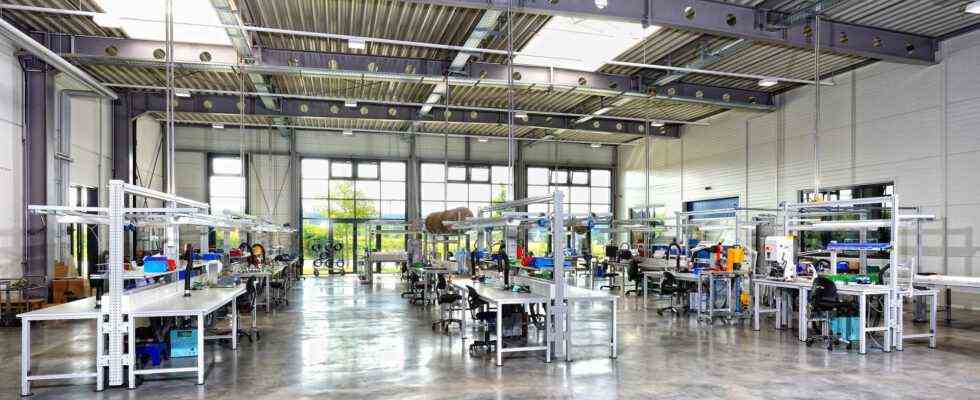Status: 04.11.2021 11:11 a.m.
The total number of short-time workers in Germany is falling. But in the industry, employees are increasingly being sent on short-time work. Because delivery bottlenecks slow down production – despite many orders.
In October, the number of short-time workers in Germany fell further. The ifo Institute estimates the decrease compared to September at 76,000, so that last month 504,000 people were still on short-time work. The situation in industry developed against this trend. According to the Ifo Institute, the number of short-time workers there rose by 20,000 to 226,000. This corresponds to 3.3 percent of the industrial workforce. The economic researchers base their estimates on data from the Federal Employment Agency.
“The bottleneck in the preliminary products literally stifles production,” said Ifo economic director Timo Wollmershäuser. “With the current order backlog, a maximum of 10,000 employees in industry should actually be on short-time work.” But at car manufacturers and their suppliers alone, the number of employees on short-time work rose from 27,000 to 33,000, at manufacturers of metal products from 20,000 to 31,000 and in the chemical industry from 15,000 to 19,000.
“Paradoxical Situation”
The effects of the supply bottlenecks are particularly evident in this development in the industrial sectors. For example, there is a lack of microchips, which are found in many products from cars to household appliances. “The situation will probably remain paradoxical for a long time to come,” said VP Bank’s chief economist, Thomas Gitzel. “The industry actually has enough orders to keep production running at full speed, but in view of the missing parts, the output just trickles away.”
German industry recorded 1.3 percent more new orders in September than in August, according to the Federal Statistical Office. However, due to falling demand from Germany and the euro zone, growth fell short of expectations after the unexpectedly sharp drop in orders in August. The slight increase in the number of orders in September was primarily due to foreign demand with an increase of 6.3 percent.
Because of the shortage of materials, the industry could not benefit from the increased foreign orders and produce more, said Commerzbank chief economist Jörg Krämer. In addition, the new corona wave in China is likely to lead to the closings of factories that are important for replenishing German industry.

